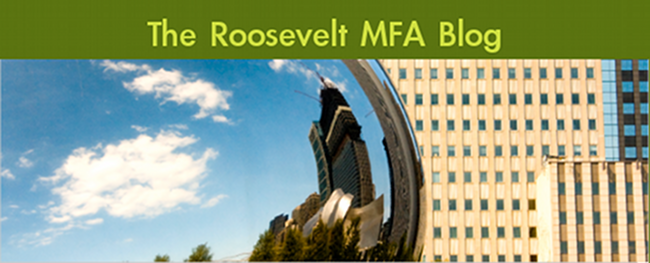What does it mean to read a text? How do the perspectives we bring to reading shape and limit our understanding? This course will focus on one primary text and a wide range of theoretical materials; through intensive study and discussion, students will develop the tools necessary for graduate study in English, and will leave the course with a better sense of the critical and methodological frameworks they might bring to their future work in the discipline.
Faulkner, Fitzgerald, Stein (Janet Wondra)
While these three writers are rightly considered lions of American modernism, their reputations were made long before we began focusing on such concerns as race, gender, class, and sexual orientation as part of literary analysis. Yet even in this changed critical climate, the authors hold their own, for each has an unique take on marginalization, expressed in a distinctive voice and a compelling style. In all three cases, we'll look at works considered major as well as some deemed minor because in the "smaller" works we often find earlier versions of ideas expressed in the novels. Are these variants alternates, refinements, mutations, or something quite different? Readings will include Faulkner's The Sound and the Fury, Light in August, "Barn Burning," and "That Evening Sun;" Fitzgerald's The Great Gatsby and This Side of Paradise as well as a number of short stories; and Stein's Three Lives, selected poems, and some excerpts from longer works including The Autobiography of Alice B. Toklas.
Fiction I (Scott Blackwood)
Workshop on the craft of the short story; emphasis on the various means of storytelling: point of view, tone, character development, and plot.
Fiction III/IV (Staff T.B.A.)
Workshop further develops the advanced writer's craft; some emphasis on preparing fiction manuscripts for submission and publication.
Poetry I (Janet Wondra)
Students compose and revise their own poetry while studying the foundations of poetry, including classical metrical poetry, and today's more eclectic free verse.
Nonfiction II/III (Staff T.B.A.)
Description forthcoming.
Reading & Writing Eco-Literature (Kimberly Ruffin)
What is America's history and present of ecological writing? This multicultural study of U.S. eco-literary traditions and trends includes both canonical and emerging authors. The range of topics includes various perspectives on: "going green," global climate change, nature-writing, and environmental justice. Students read and apply ecocritical theory and author their own literature. Works from most, if not all, of the following authors will be required reading: Henry David Thoreau, Alice Walker, Enrique Salmon, Rachel Carson, Joseph Bruchac, Patti Ann Rogers, Leslie Marmon Silko, David Mas Masamoto, Mary Oliver, Aldo Leopold, Cesar Chavez, and Janisse Ray. Note: this course involves experiential learning that requires off-campus activities, including participation in Roosevelt University's New Deal Service Day.
Oyez Review Literary Magazine Internship (Janet Wondra)
All student staff edits Oyez Review, a literary journal featuring fiction, poetry, and creative nonfiction, published at Roosevelt for 35 years. Hands-on internship in editing, designing, producing, publicizing, and distributing the journal. Some instruction in protocols for book, magazine, and newsletter publishing.
Also of interest to MFA students (counts as a lit credit):
Women & Gender Studies: Feminist Theories of Performance (Regina Buccola)
Feminist Theories of Performance will explore how gender is performed in both the theater and life. We will bring a variety of critical perspectives to bear on our examinations of plays, novels, films, and performance art, including feminist theater theory, feminist literary theory, feminist cultural theory and the feminist philosophy of Judith Butler. By the end of the term, students will be able to apply feminist criticism from all these perspectives to their own written analyses of works in all four genres (drama, film, fiction, and performance art).

No comments:
Post a Comment